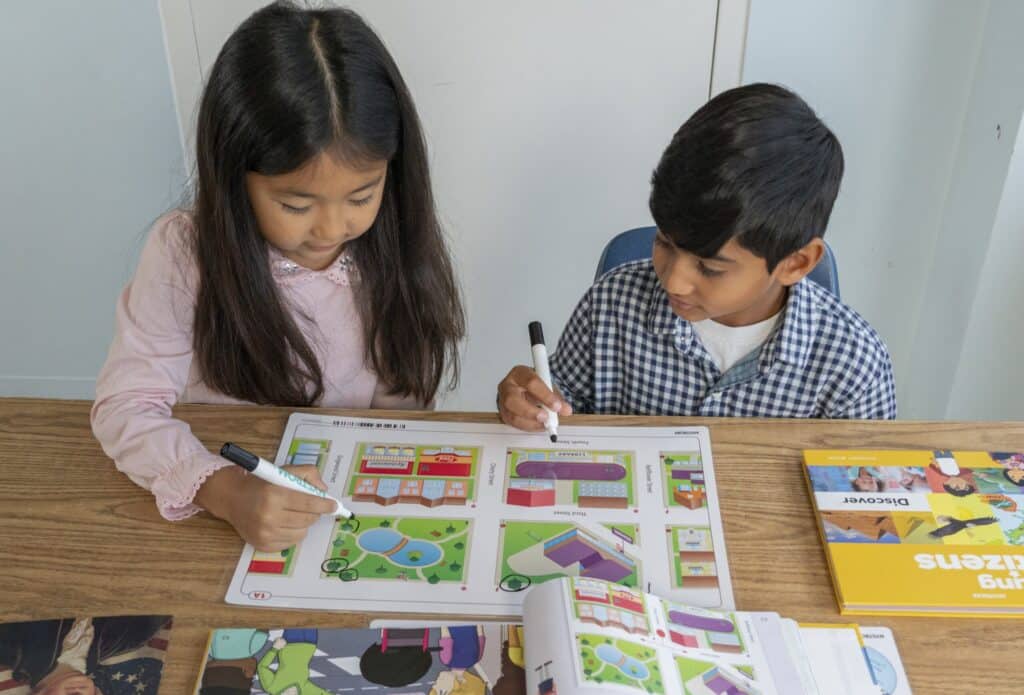MENTAL HEALTH - Initiating
Learning Playlists > Mental Health – Initiating
According to the literature, 3.8 million U.S. children have unmet mental health needs. Of children with an identified mental health need, only a little bit over half, 51% get the mental health support they need. Of those students, 58% get that help in schools. There is also a shortage of mental health providers, and many barriers to people finding linguistically and culturally appropriate services on top of other barriers that we know exist in school communities. For many students, schools are the first and only setting in which they receive behavioral health supports. This is why this topic of mental health literacy is so critical for schools and districts.
The resources below are recommended for schools or districts starting in this work. Your school or district may be exploring this work and wondering where to begin. These resources focus on mental health literacy and promotion (Tier 1), which are fundamental components of school or district-wide student mental health supports.
You are ready for the “initiating” stage of the Mental Health Pillar if you are exploring how to support mental health schoolwide but need to build shared understanding, provide a clear rationale to key collaborators, and learn more about foundational practices in comprehensive school mental health systems. Click here for our Action Planning Guide to help you through the process of creating an action plan that will help your school move towards becoming a more resilience-supportive school community.

- 45 minutes
The School Mental Health Quality Assessment is designed for schools to assess the comprehensiveness of the school mental health system and identify priority areas for improvement. The assessment covers seven domains: 1) Teaming; 2) Needs Assessment and Resource Mapping; 3) Mental Health Screening; 4) Mental Health Promotion – Tier 1; 5) Early Intervention and Treatment – Tier 2 & 3; 6) Funding and Sustainability; and 7) Impact. The assessment is best done as a team that has broad and diverse participation to ensure meaningful assessment, successful planning, and implementation. There is also a version that can be used at the district level. Click here for the Assessment Guide to help your team through this process.
You can take the School Mental Health Quality Assessment on the RSSI site at www.rss-illinois.net. For a PDF of the school version of the assessment, click here. For the district version of the assessment, click here.
For more information about the School Mental Health Quality Assessment, visit the SHAPE System at the National Center for School Mental Health by clicking here.

- 60 mins
This course from American Institutes of Reseach explains how school mental health supports and services work to address social, emotional, and behavioral challenges that interfere with learning should provide individual, family, and group counseling, consultation for school staff, and mental health promotion and prevention programming. Includes information on: best practices for building partnerships and collaboration; shared leadership teams; youth, family and community engagement; evidence-based programs, evaluation and outcomes.
Developing a Comprehensive Mental Health Program in Your School-Community – Overview

- 30 minutes
This report from the Baker Center for Children & Families highlights the current strengths and barriers related to promoting healthy outcomes for students living with mental health concerns, and explains the implications for policy, systems, and practice. It also provides actionable recommendations and strategies to ensure that all children and families have access to the services and supports they need in order to thrive.
You can find a PDF to this report by clicking here.

These guides from the National Center for School Mental Health provide information to help school mental health systems advance the quality of their services and supports. There is a unique guide for each of the seven domains of the SMHQ Assessment: teaming, need assessment and resource mapping, screening, teaming, Tier 1, Tiers 2 and 3 (services and supports), funding and sustainability, and impact. Each guide contains background information on the domain, best practices, possible action steps, examples from the field, and resources.
School Mental Health Quality Guides | University of Maryland School of Medicine
- 20 mins

- 30 mins
Recent national surveys of young people have shown alarming increases in the prevalence of certain mental health challenges— in 2019, one in three high school students and half of female students reported persistent feelings of sadness or hopelessness, an overall increase of 40% from 2009. This 2021 Advisory from the U.S. Surgeon General is a public statement that calls our attention to an urgent public health issue and provides recommendations for how it should be addressed. This Advisory offers recommendations for supporting the mental health of children, adolescents, and young adults.
You can find a PDF of this report by clicking here.

- 45 mins
Comprehensive school mental health systems provide an array of supports and services that promote positive school climate, social and emotional learning, and mental health and well-being, while reducing the prevalence and severity of mental illness. This 2019 guide from National Center for School Mental Health offers collective insight and guidance to local communities and states to advance comprehensive school mental health systems. Contents were informed by examination of national best practices and performance standards, local and state exemplars, and recommendations provided by federal/national, state, local and private leaders.
You can find a PDF of this guide by clicking here.

- 15 mins
This website is packed with information on mental health-related topics. Their team creates high quality mental health literacy information, research, education and resources. The materials are provided in a variety of mediums that include videos, animations, brochures, e-books, face-to-face training programs, and mental health literacy curricula for elementary and high schools. Materials are specifically designed to meet the needs of children, youth, young adults, families, educators, community agencies and health care providers.

- 30 mins
Visit these websites for additional reading, videos and tools to assist in exploring how your school or district might develop a comprehensive school mental health system.
Boston Public Schools Behavioral Health Services: Read about The BHS department is comprised of over 100 school psychologists and over 50 graduate students, which support all BPS schools to provide student-level services (e.g. counseling & interventions) and systems-level services (e.g. climate team facilitation). This work is aligned with NASP Practice Model.
Wisconsin School Mental Health Framework: This framework includes six components of a Comprehensive School Mental Health System (CSMHS) and provides guidance on implementing them from a trauma sensitive lens.
Sacramento County Office of Education: This school district is transforming schools into centers of wellness by placing mental health teams in every school in the county. No longer do students need to be in crisis to receive the mental health supports they need. This approach acknowledges that everyone can benefit from mental health support and emphasizes the importance of accessing these services before a crisis occurs.
- Effective School-Community Partnerships to Support School Mental Health (guide)

- 12 mins
This document provides an overview of the key elements of school-community partnerships and specific action steps for states, districts, and communities to foster effective collaboration between schools and community health and behavioral health partners. It also includes an example of a template to use for a Memorandum of Understanding to guide the work with community partners, and information on Family Educational Rights and Privacy Act (FERPA) And the Health Insurance Portability and Accountability Act of 1996 (HIPAA).
You can find the PDF of this guide by clicking here.
- Information for Youth, Parents and Caregivers (websites and resources)

- 15 mins
There’s a lot happening in the world that can make everyday life feel overwhelming for young people. Bookmark these sites for information and handouts for parents, caregivers, teachers and youth to build knowledge around mental health, sign to watch for, as well as tools and skills to teach children and youth cope with the challenges they face today.
The Center for Youth Mental Health: The Center for Youth Mental Health was founded to address the epidemic of anxiety and depression among young people, and its website includes topics and resources for parents, caregivers, and professionals to gain information about common mental health issues in youth.
Parent Guidance: This website includes a library of courses, developed by mental health experts, offer hope, answers, and compassionate help for caregivers. The site also offers a section called “Ask a Therapist,” where caregivers can find answers to common though difficult questions they might have about their child. Caregivers can also learn the skills to recognize address suicidal thoughts in your children. Explore risk factors, warning signs, how to respond appropriately.
